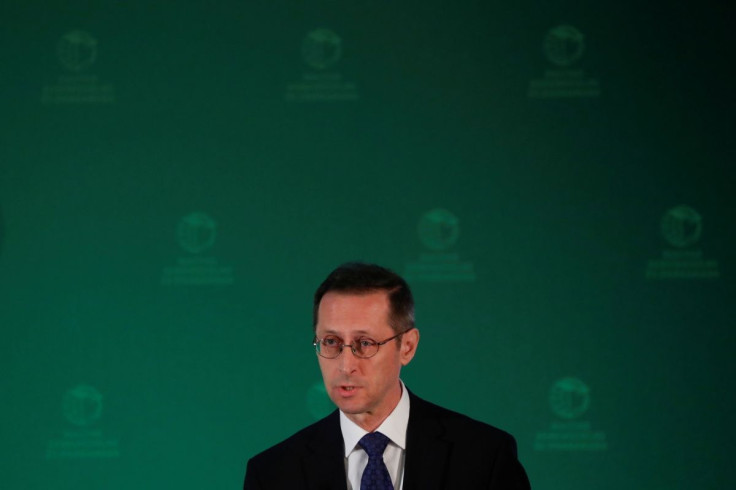EU Fails To Agree Corporate Tax Reform As Hungary Vetoes Overhaul

The European Union's adoption of a 15% corporate minimum tax was thrown into doubt again on Friday as Hungary raised last-minute objections that prevented a deal among all 27 EU states to turn it into law.
Hungarian Finance Minister Mihaly Varga told his EU counterparts at a meeting that his country could not support the reform of corporate taxation at this stage, dashing hopes for an agreement on Friday after Poland had dropped its own objections.
"The work is not ready," Varga said during a public session. "I think we have to continue the effort to find a solution."
French Finance Minister Bruno Le Maire, who had made the tax deal a key goal of the six-month French presidency of the EU ending in two weeks, did not hide his disappointment but urged ministers to continue the work to strike a deal at a later stage.
At the meeting, Poland's finance minister Magdalena Rzeczkowska formally dropped its opposition to the deal.
The EU talks were meant to turn into law a global reform of corporate taxation that was agreed last October by nearly 140 countries.
Le Maire said that all technical issues had been long solved, implying the stalemate was down to political concerns.
The new objection illustrates the political complexities of global corporate tax reform, said Manal Corwin, head of KPMG's Washington National Tax practice.
"Obviously, this is not the end of the story, as we have seen objections emerge and then be removed before," Corwin said, adding that some countries may choose to implement the minimum tax on their own.
NON-TAX DISPUTES
Poland and Hungary have been at odds with the European Commission, which has held up their receipt of COVID-19 recovery fund money over questions about their stance on the rule of law and other EU values.
Earlier in June the Commission approved payments to Poland, whereas EU recovery funds for Hungary remain frozen.
The overhaul set global minimum corporate tax of 15% on big multinationals and gave other countries a bigger share of the tax take on the earnings of big U.S. digital groups such as Apple Inc and Alphabet Inc's Google.
The U.S. Treasury, which helped broker the corporate tax reform deal last year, expressed optimism that Hungary would soon drop its objections.
"This is a once-in-a-generation opportunity to end the race to the bottom on corporate taxes, level the playing field for U.S. businesses, and decrease incentives to shift profits and jobs offshore," said Treasury spokesperson Michael Kikukawa.
The reform was originally intended to be applied in 2023, but its implementation has now been effectively pushed back to 2024.
The Biden administration is also struggling to pass broad spending legislation that would implement the global minimum tax deal. Republicans and some moderate Democrats in Congress have objected to proposed tax hikes, including raising the current 10.5% U.S overseas tax rate to 15%.
© Copyright Thomson Reuters {{Year}}. All rights reserved.





















